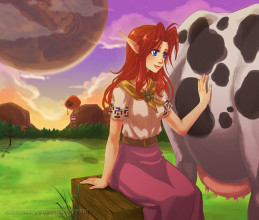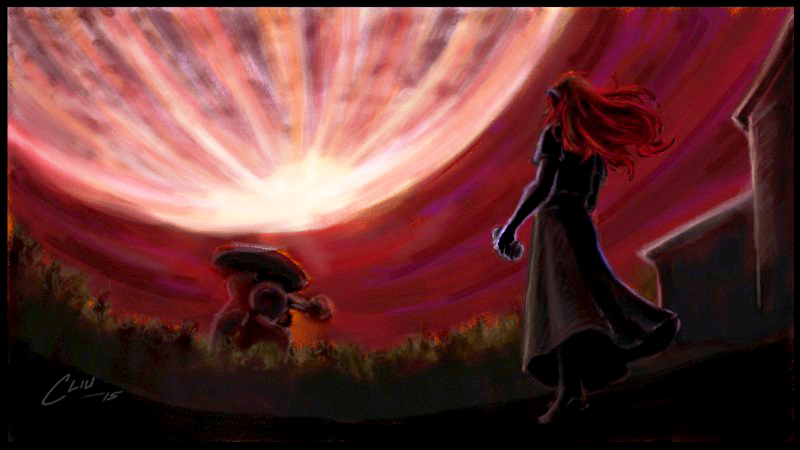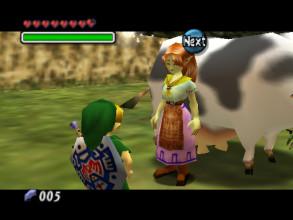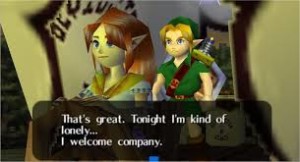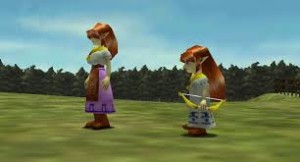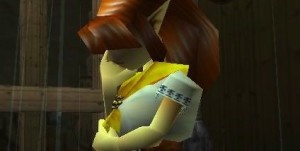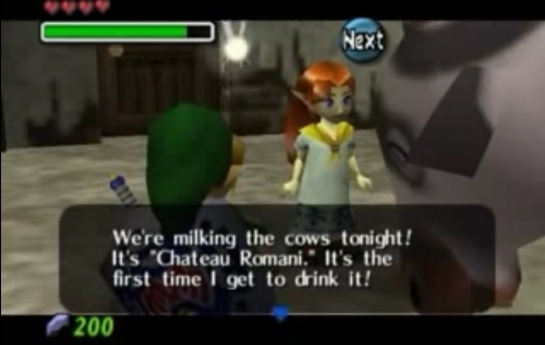«Бедных-несчастных» осчастливили
Венецианский юбилейный 80-й фестиваль завершился убедительной победой фильма «Бедные-несчастные» грека Йоргоса Лантимоса, которому ожидаемо присужден «Золотой лев». Эта главная награда, как и большинство остальных призов, не удивила Андрея Плахова.
Развернуть на весь экран
Режиссер фильма «Бедные-несчастные» Йоргос Лантимос
Фото: Guglielmo Mangiapane, Reuters
К исключениям можно отнести разве что решение жюри под началом Дэмьена Шазелла признать лучшей актрисой Кейли Спейни, сыгравшую жену Элвиса Пресли в фильме-байопике «Присцилла». У нее были такие сильные конкурентки, как Альба Рорвахер и Джессика Честейн, появившиеся в других конкурсных лентах. И, разумеется, Эмма Стоун из картины Лантимоса. Жюри, однако, предпочло поддержать молодую артистку довольно скромных данных. А, похоже, заодно — постановщицу «Присциллы» Софию Копполу и в ее лице бедную-несчастную американскую киноиндустрию, истощенную актерской забастовкой.
Более оправдан выбор Питера Сарсгаарда как лучшего актера: в фильме Мишеля Франко «Память» он трогательно сыграл страдающего деменцией неприкаянного героя. Эта картина, как и «Вне сезона» Стефана Бризе,— две локальные гуманистические психодрамы о маленьких людях, их неизжитых травмах и трудно выстраиваемых отношениях — были показаны под занавес фестиваля, нашли своих поклонников и создали противовес фильмам больших тем и претензий. Но претендовать на награды все-таки не смогли.
Развернуть на весь экран
Фото: Guglielmo Mangiapane, Reuters
Пабло Ларраин и Гильермо Кальдерон отмечены призом за сценарий чилийского фильма «Граф» — сюрреалистической биографии диктатора Пиночета, представленного в образе бессмертного вампира. Большой приз жюри «Серебряный лев» — второй по значению на фестивале — достался экологической притче японца Рюсукэ Хамагути «Зла не существует». Конфликт между деревенской общиной и алчной компанией, намеренной построить на этой территории глэмпинг, перерастает из чисто социального в экзистенциальный. А в какой-то момент в ход событий вмешивается сама природа, и дело неотвратимым образом идет к трагедии.
«Серебряный лев» лучшему режиссеру присужден итальянцу Маттео Гарроне за фильм «Я, капитан», а играющий в нем юного авантюрного сенегальца Сейду Сарр получил приз памяти Марчелло Мастроянни, предназначенный для молодых артистов. Эта картина посвящена теме массовой миграции, как и «Зеленая граница» польки Агнешки Холланд: ее наградили Специальным призом жюри.
По недовольным лицам обоих лауреатов было заметно, что они рассчитывали на более весомые награды.
В самом деле об этих фильмах во второй половине фестиваля больше всего говорили, и каждый из них собрал по несколько призов многочисленных неофициальных жюри. Особенно важна была бы поддержка для Агнешки Холланд, которая подверглась на родине атаке консерваторов и ультраправых за критическое изображение действий властей страны во время гуманитарного кризиса на белорусско-польской границе. Получая приз, Холланд отметила, что многие беженцы по-прежнему находятся в пограничной зоне, страдают и нуждаются в срочной помощи. «А мы не помогаем им не потому, что у нас нет для этого средств, а потому, что не хотим»,— заявила она.
Развернуть на весь экран
Режиссер фильма «Я, капитан» Маттео Гарроне и актер Сейду Сарр
Фото: Guglielmo Mangiapane, Reuters
При всем сочувствии, которое вызвали у фестивальной публики драматические судьбы и мучительные скитания мигрантов, главным художественным переживанием стал фильм-победитель «Бедные-несчастные». Интеллектуальный блеск, эмоции, чувственность, великолепный декор, неистощимая фантазия — среди его неоспоримых достоинств. Плюс первоклассная игра Эммы Стоун, которая проявила себя смелой актрисой, в совершенстве владеющей инструментами гротеска и эксцентрики. Ее героиня, жертва абьюза и брака без любви, после суицида возрождается к жизни с помощью ученого-экспериментатора и проходит множество стадий личностного роста. Она путешествует по миру, приобщается к идеям социализма, в конце концов становится врачом и превращает окружающий ее мир в божественную утопию. Мотивы феминизма вплетены в эту картину легко и с юмором, который Лантимос раньше почему-то скрывал под маской холодного аналитика.
В программе «Горизонты» главного приза удостоен фильм венгра Габора Рейша «Объяснение всему». А «Лев будущего» — приз для лучшего дебюта — завоевала кинолента режиссера с Тайваня Ли Хунчи «Любовь — это пистолет». В программе «Венецианская классика» заметными событиями стали показы фильма Сергея Параджанова «Тени забытых предков» и авторской версии «Андрея Рублева» Андрея Тарковского.
Источник
The Women of Legend: Cremia
In the previous Women of Legend, we went over the ins and outs of the brave but tragic little girl living on Termina’s ranch, Romani. But there is another living on that same ranch, who, while she is blissfully unaware of the horrors that invade her home once every year, she struggles with her own battles over Termina’s final three days. While her sister roams the ranch practicing for a battle against aliens, this strong woman has a lot of troubling things on her mind.
Hit the jump to read more about Cremia, the distressed, but devoted older sister.
“Actually… I know… We’re not safe here, either… That’s how life goes, I guess. There are some things in life that you can’t change no matter how hard you try.” — Cremia
Cremia is, interestingly, the less interesting character on Romani Ranch when you are first visiting. Showing up on the first day, players will be intrigued by, first, a trapped Epona, and second, the little girl running around with a bow, talking about weird alien invasions. Romani certainly catches most people’s attention, and continues to hold it throughout the “They” invasion, but for the whole first day and night, Cremia simply tends to some cows, eats dinner with her sister, and goes to bed. it is not until the second day that she actually has a chance to become an active NPC.
Assuming Link saves the ranch from the invasion, Cremia remains pleasantly unaware of the whole event, and goes on to prepare her Romani Milk shipment for delivery via carriage. You have the chance to help her, and on the ride itself, you get to see a rare type of cutscene in Zelda, with an NPC discussing, honestly, unnecessary, but still interesting, info about herself and her connections with others in the doomed world. You learn that her and Romani’s father died at one point, leaving her with the responsibility of running the place, and looking after Romani. She also mentions the cows’ distress, and occasional litter, clearly caused by the Gorman Brothers, as well as her noticing of Romani’s worry for the incoming “ghosts”. She even comments on the, allegedly, falling moon. Finally, she touches on her friendship with Anju, and her upcoming wedding. Soon, though, you must protect her cargo from the Gormans, and upon doing so, she is gracious enough to reward you with Romani’s Mask, rupees, or a great, big hug!
This is all well and great, but it is the third day that drives home the sadness you feel for Cremia. What makes Cremia so noteworthy is the her issues being the complete opposite to that of her younger sister. While Romani’s great burden and potentially horrific experiences make you pity her and wish to help protect her and the ranch, Cremia’s problems are due to the helplessness and uselessness she must feel. She actually presents a fate unlike almost all other characters in the game, in that right up to the point when the moon will fall, she always has a sad ending. On the first night, again, you determine Romani’s fate by either defeating the invaders, or leaving them to steal her away. If you don’t help her, she returns the next day in a post-traumatic state, and Cremia, right through the third day, can’t help but grieve for her sister’s near-catatonic state, and hate herself for her ignorance of Romani’s truthful worries before the invasion. Of course, you can save Romani, but there is another problem that Cremia struggles with whether you save her or not.
The key facts to remember when examining Cremia’s strife are twofold. One, she seems more aware of and emotionally distressed by the falling moon itself than most others in Termina. Two, among all the troubles that the world is facing, she seems unable to help solve any of them. While going through the game, even though players are always aware of the three-day limit, the moon itself is often an afterthought. One could easily forget the the moon is even there if they go long enough in a dungeon, or just don’t look up to the sky for long enough. But Cremia knows. She actually offers some townsfolk refuge on the final day, but points out to Link that she is fully aware of the grim fate they all share, yet unwilling to say so to the people around her, and risk breaking their already scared hearts. She also has dinner with her best friend Anju’s family (with or without Anju herself, depending on events in the Anju/Kafei quest), so she must be aware that Anju’s wedding is in jeopardy. Once again, another piece of bad news that she is totally unable to make at all better.
Worst of all is the single conversation with Romani that is always most noted among fans. If Link helps Romani against the invading aliens, she remains her usual cheeryself, leaving Cremia needing to put on a smile throughout her struggles, not wanting to worry the girl. In the barn while tending to the cows, she offers Romani a chance to have the alcohol-esque magic milk that night, and tells her to sleep with Cremia in her bed, to which Romani happily agrees. This subtle way of avoiding her sister’s fears as the moon falls is just tragic. Disorienting and essentially sedating Romani with the magic milk and holding her close as the world ends is still debated to be the saddest part of the game, and I would be one to agree. It seems that while Cremia realizes she is helpless to fix most, if any, problems occurring around her, she still just wants what is best for her only family.
While Cremia is a warm and welcoming big sister and ranch owner on the outside, on the inside, she is actually one of the most depressing characters Zelda has ever had, and the detail and subtlety of her strife over the three days just goes to show how much of a tragic and artistic achievement Majora’s Mask really is. Hopefully, characters with struggles and strength like her’s can appear in future games, to capture our hearts, and to strengthen our resolve to save them, and the world around them.
Источник
Zelda: Majora’s Mask – Comparing Cremia and Romani’s “Adulthood” Dialogue [JPN/ENG]
In the Legend of Zelda: Majora’s Mask, the innocent Romani is excited to try Chateau Romani for the first time without fully understanding the circumstances as to why her older sister Cremia is suddenly allowing her to try it. I got curious to see what the conversation was like in Japanese, so decided to look into it.
So, here it is: (Note, the dialogue alternates between Cremia and Romani, as one can tell by the tonal differences):
今夜のむ ミルクをしぼってるの!
「シャトー・ロマーニ」よ
飲むの はじめて!
おねえさま! いままでは
「あんたは オトナになってから」
って 言ってたのに どうして?
そうね
つくってあげる・・・
‘ 今夜は 私のベッドで
いっしょに 寝ようね ロマニー
We’re squeezing milk to drink tonight!
“Chateau Romani!”
This is the first time I’ll drink it!
Why now though, sister?
Up until now you’ve said
“When you’re an adult.”
…
You…are an adult, Romani.
Your elder sister acknowledges it.
So, does Romani get a mask too then?
That’s right.
I’ll make one and give it to you…
Tonight, let’s sleep in the same bed, hmm Romani?
Good night…
See…
you tomorrow…okay?
We’re milking the cows tonight!
It’s “Chateau Romani.” It’s the
first time I get to drink it!
Until now, my sister always said
“Wait until you’re an adult.”
But why now?
………
You’ve become an adult now,
Romani…I see it in you.
I’m acknowledging it.
Then, does Romani get a mask,
too?
Well, yes, I’ll make one for you…
Sleep with me in my bed tonight,
OK, Romani?
Good night…
See you…tomorrow…OK?
Very small differences! The localizers stayed pretty true to the original text and meaning, and only added very slight things to make the English flow better. Both are just as cryptic and warm, so that was nice to see.
As trivia, fans theorize that since Chateau Romani is reminiscent of alcoholic drinks in the real world (adults only, night bar based, etc), that Cremia is effectively euthanizing her sister by putting her to sleep so she doesn’t have to suffer the moon falling (and so end of the world) when awake.
Now that’s rather dark. Implied dark, but dark all the same. A truly wonderful game this is!
And that’s that. If you would like to see more of these sort of brief comparisons, feel free to leave a comment or suggestion (or email me under “Contact”).
Источник



